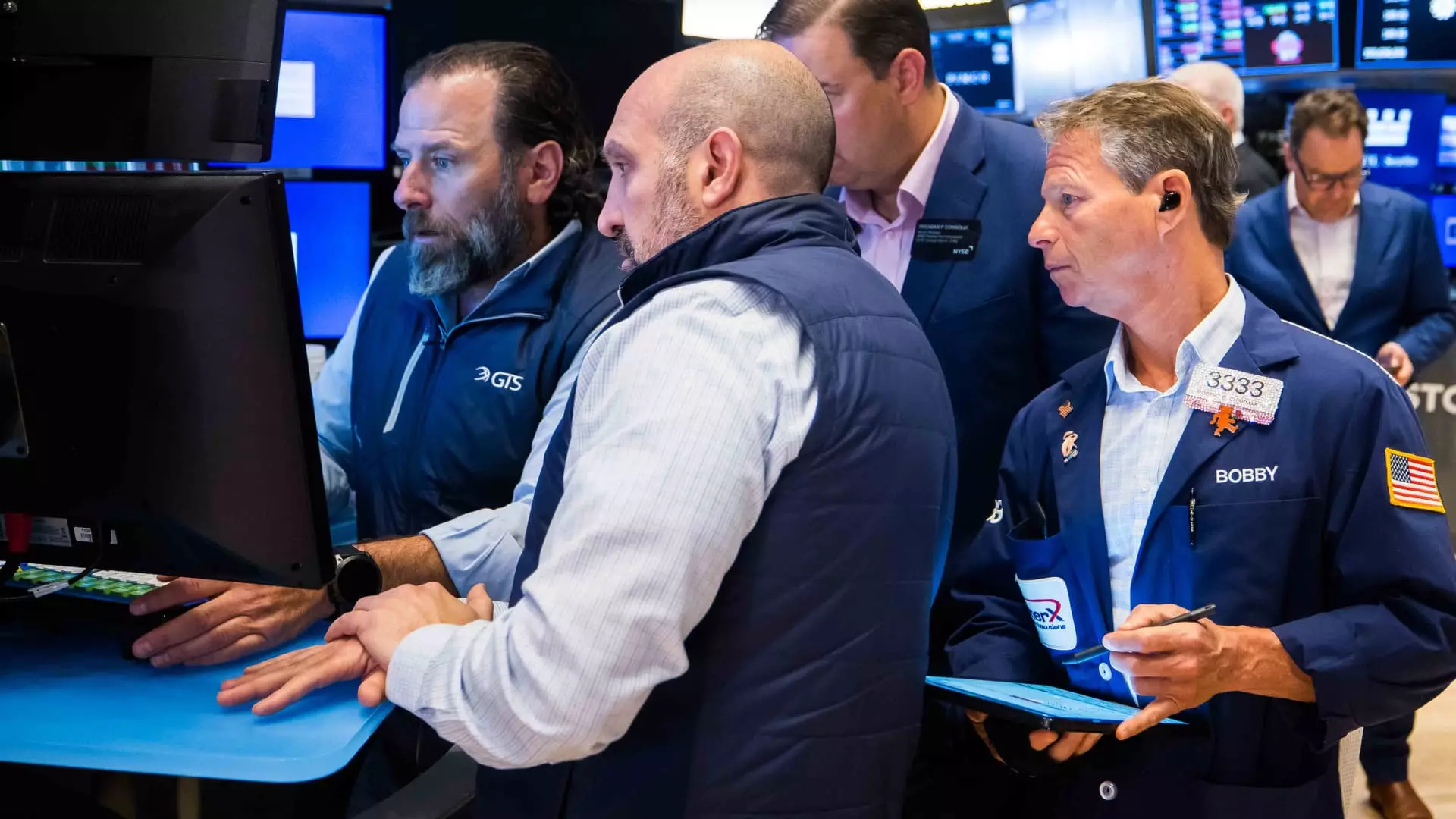Financial markets experienced a brutal sell-off that sent shockwaves across various sectors. The Dow Jones Industrial Average’s staggering 745-point decline, translating to a notable 1.7% drop, signals a deeper problem simmering beneath the surface. As Treasury yields surged, especially the 30-year bond hitting a remarkable 5.08%, questions surrounding fiscal responsibility loom large. The growing anxiety among traders is tied to the impending U.S. budget bill, which raises fears that an already substantial deficit may worsen, leading to an unsustainable financial trajectory that could burden generations to come.
Market analysts caution that rising yields often reflect growing unease about future interest rates and fiscal policies. The benchmark 10-year Treasury yield at 4.59% is troubling. With each uptick, it feels like a ticking time bomb for investors, creating an environment of uncertainty that could dislodge the cautious optimism that has been prevalent in the past few weeks.
A Budget Bill that Could Worsen Fiscal Disparities
The current fiscal landscape is fraught with hurdles, especially with impending discussions over a budget bill expected to pass. While political maneuvers may suggest bipartisanship, it is hard to overlook the potential repercussions of increased taxation or further government spending. Simply put, if lawmakers pursue policies that only serve to prolong fiscal irresponsibility, taxpayers might find themselves in a deeper quagmire. Sam Stovall from CFRA Research succinctly captured the conundrum: the anticipated tax bill could merely exacerbate the national debt without addressing the underlying inflationary issues that plague the economy.
There needs to be a critical examination of legislative measures designed to alleviate the burden on the average American. Are these new policies truly beneficial, or merely a desperate attempt to pacify constituencies without a meaningful long-term strategy? Unchecked legislation in an economic environment where spending exceeds revenue can only lead to dire outcomes—an outcome that appears to be on the precipice of realization.
The Disillusionment of Major Corporations and Investors
Fear of rising interest rates is not merely confined to hedge funds and institutional investors; it has direct implications for everyday consumers, many of whom are grappling with rising costs that outpace wage growth. The financial struggles faced by major retailers like Target, which observed a significant drop in its stock after a grim sales forecast, further highlight how uncertainty around tariffs and fiscal policy can stifle growth. Executives cite tariff-related concerns and backlash over diversity initiatives as catalysts for this downturn, showcasing the precarious intersection of market performance and corporate ethics.
Similarly, sectors traditionally regarded as the backbone of the U.S. economy—like healthcare and technology—are not immune to these turbulent winds. The decline of UnitedHealth’s stock, dismissively responding to a downgrade from HSBC, paints a picture of a broader malaise. Companies like Apple and Amazon, once seen as stalwarts in an otherwise chaotic market, faced declines, revealing vulnerabilities that investors have overlooked in their pursuit of rapid gains.
The Irony of Recovery Amidst Decline
Even as stocks staged a rebound after the previous month’s sell-off, the optimism felt fleeting and tenuous. With the S&P 500 enjoying its first losing day after a six-day winning streak, it raises questions about the sustainability of the recovery. A month ago, many heralded the resurgence as a sign of resilience; now, that sentiment feels overly optimistic. While the markets have seen noteworthy gains—over 14% for the S&P 500—what remains unresolved is whether the rally was legitimately grounded or if it was a temporary spike in an overarching trend of unpredictability.
“Ironically, some market watchers worry we’ve ascended too high, too quickly, creating a tenuous bubble,” said Stovall. These comments reflect palpable anxiety among informed traders and casual investors alike. It’s as if the market is teetering on the edge, and any negative news could swiftly catalyze a downturn that recalls the pain of previous volatility.
As we wade through these turbulent waters, the prevailing sentiment is one of caution. Investors need to brace themselves for a potentially harsh adjustment period, where the impacts of fiscal policies, yield spikes, and corporate performances will determine the future of this fragile economic landscape. The stakes have never been higher—and neither has the urgency for a shift towards greater fiscal prudence.


Leave a Reply